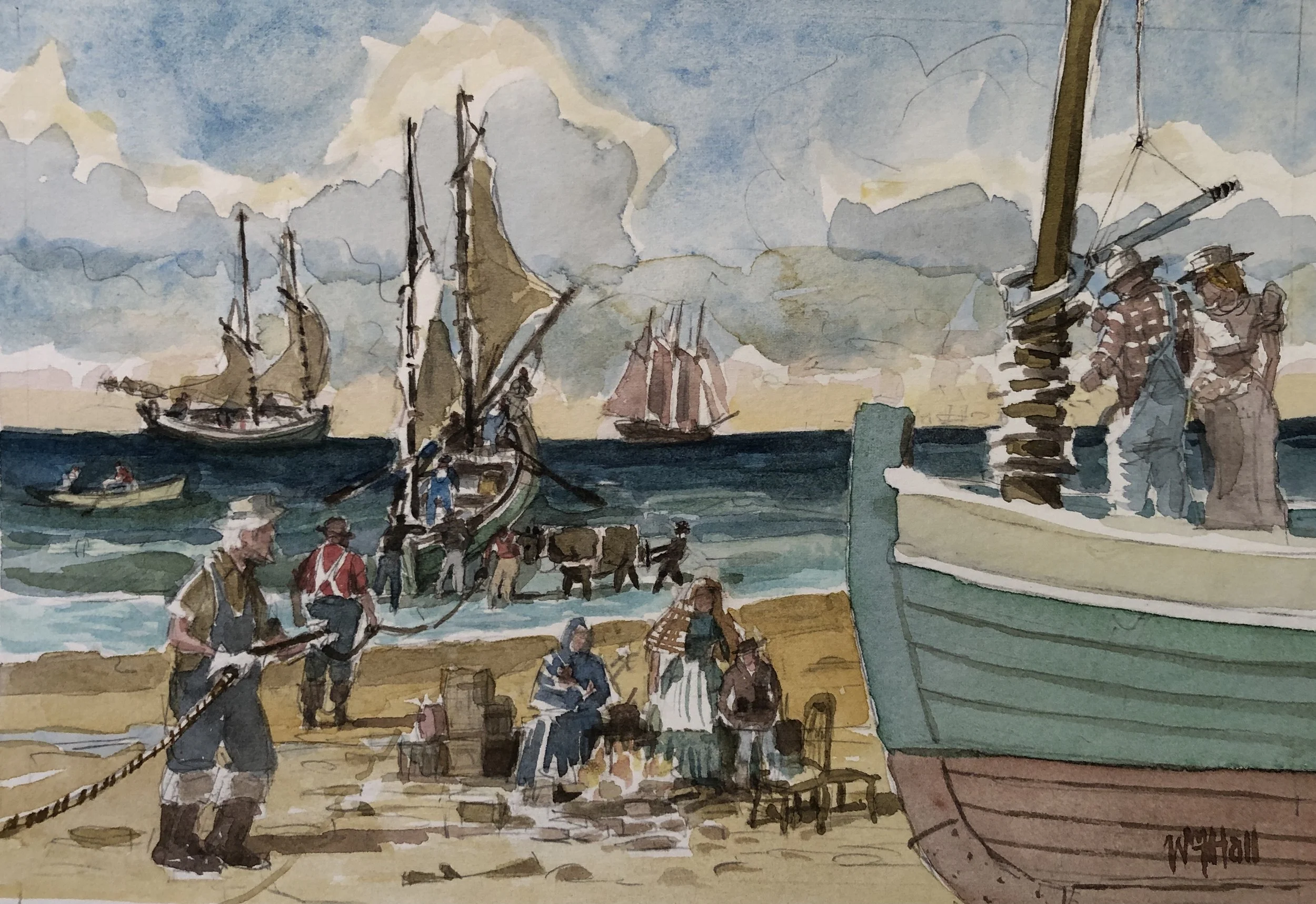Handing down their boats and their livings
“Wedding Dowry” (watercolor on Arches Paper), by William Talmadge Hall, at David Chatowsky Art Gallery, 47 Dodge St., Block Island, R.I. (401) 835-4623
Hit this link for Mr. Hall’s Web site.
He explains:
“In this picture I show a Block Island Double-Ender fishing boat being brought up on the beach at the end of a day around 1840, with the help of oxen and block and tackle. The boats, a mainstay of the island’s fishing and transportation in the 18th and 19th centuries, were built by islanders to circumvent the problem of not having particularly safe harbors, necessitating that boats be drawn up into the dunes at night to wait for a favorable tide and reasonable weather.
This required the islanders to help each other daily, building a tight communal bond.
Fishing from the family-owned boats was so successful in harvesting the plentiful fish stocks around the island that the Block Island Double-Ender fleet grew large and the boats become famous for seaworthiness.
In this picture, the newlyweds on the boat to the right prepare to forge ahead in their new boat. Two generations of Block Islanders watch this ceremony as they sit on the beach at day’s end in front of a small fire.
Over the years, fathers handed down their boats to sons, and if there were no sons then a boat might be a dowry gift to a daughter and son-in-law.
The new husband brought the potential of a bigger extended fishing family once he had proven himself a worthy fisherman and become the the ascending key figure in the future.
Either way, the prize was the boat and the legacy it represented to a self-sufficient fishing community bolstered by shared beliefs.
xxx
I’m a 74-year-old artist. My family has been a part of Block Island's history for five generations. My father was the first male Hall on the island not to pursue fishing as a career, although he harpooned swordfish until he was drafted into the Army, in World War II.
I’m a watcher, and many of my paintings are about people working — the simple grace of people doing what they do each day to make a living. These folks don’t dwell much on the meaning or the ultimate results of what they do. They go with the flow of a continuum of work.
